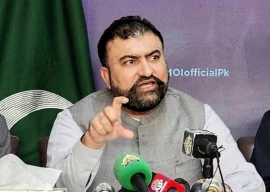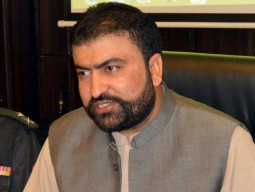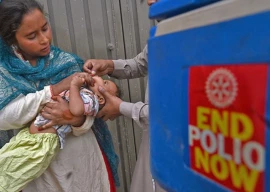
A new report by Human Rights Watch (HRW) details the impact of militancy on education in Balochistan, already in a dire state because of low enrolment rates, missing infrastructure and low literacy rates.
The report, titled ‘Their Future at Stake’ documents the killings of at least 22 teachers and other education personnel between January 2008 and October 2010. Militant groups have also attacked a number of schools in Balochistan, which has impacted the education of the province’s population. The instability has led to schools only being open in Balochistan for 120 days in 2009, compared to 220 days in the rest of the country.
A senior provincial government official is quoted in the report as saying, “Education at the institutional level is an orphan institution [and] therefore it is easy to attack. The [provincial] education department lacks leadership. It is mired in corruption and bad governance. It is even incapable of utilising its annual budget.”
HRW interviewed 23 people for the report earlier this year, including three school-going teenagers.
High-profile killings such as those of the provincial minister for education Shafiq Ahmed and Balochistan University assistant professor Nazima Talib are indicators of the worsening state of affairs in the province.
As a result of the attacks on educationists, the report states that since 2008, more than 200 teachers and professors have either transferred to Quetta or left the process and almost 200 others are in the process of transferring.
A senior civil servant told HRW, “Many of these teachers were threatened, others were scared and the government can do little to encourage them to stay in these districts. When it comes to transfer requests on the basis of a threat to life, we don’t have an excuse to turn them down.” Another senior government official said that many teachers assume they are at risk and so request transfers, even if they are from areas where there have been no attacks on educational institutions or teachers. To compound the situation, the lack of qualified replacements is also contributing to the state and quality of education.
Threats and attacks are carried out by a variety of groups, according to the report, including nationalist groups that threaten schools against hoisting the Pakistan flag, singing the national anthem or teaching Pakistan Studies.
Religiously-motivated groups such as the Harkatul Mujahideen have warned schools against co-education and ‘western-style’ uniforms. The killings of educationists are believed to be part of a pattern of ‘target killings’ of ethnicities such as Punjabis by militant nationalist groups.
The launching ceremony for HRW’s report was held in Islamabad at a local hotel. Salima Hashmi from HRCP Punjab, Ali Dayan Hasan, senior South Asia researcher, Kamran Arif, HRCP bureau member and Hussain Naqvi from HCRP, Lahore were the panellists present on the occasion.
“It is a clear and serious violation of human rights and, according to the international laws, it is termed a ‘war crime’,” said Ali Dayan.
HRW’s second report will document the “pattern of involvement by security forces in the enforced disappearances of the ethnic Baloch in the province”.
Published in The Express Tribune, December 14th, 2010.

1731476617-0/Sandra-Oh-(2)1731476617-0-165x106.webp)















COMMENTS (3)
Comments are moderated and generally will be posted if they are on-topic and not abusive.
For more information, please see our Comments FAQ